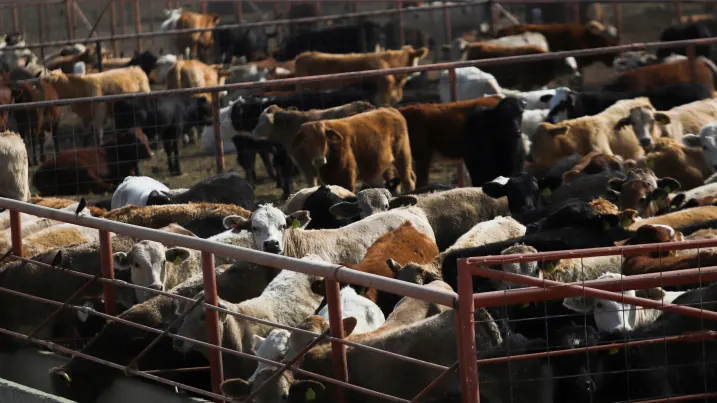Former President Donald Trump recently stirred the U.S. cattle industry by suggesting the possibility of importing beef from Argentina, following his administration’s controversial bailout plan for the South American nation. While the plan was aimed at providing relief to Argentina’s struggling economy, it has sparked strong reactions from domestic cattle producers who warn that such a move could distort the U.S. beef market.
Trump’s proposal comes at a time when U.S. beef prices have reached record highs, with the average cost of a pound of beef climbing to levels not seen in decades. The suggestion to bring in Argentine beef, a move critics say is politically and economically motivated, has raised alarms among American ranchers and cattle industry stakeholders. They fear that opening the door to foreign beef could drive domestic prices down artificially, undermining years of effort to stabilize the U.S. cattle market.
Cattle farmers argue that the real challenges facing the industry are not foreign imports, but rather long-term structural and environmental issues. According to the latest reports from the U.S. Department of Agriculture (USDA), U.S. cattle herds are at their smallest size since 1951, with drought conditions in key cattle-producing regions severely impacting herd sizes and overall beef production. Many ranchers in states like Texas, Kansas, and Nebraska have reported significant losses due to prolonged dry spells, forcing them to reduce herd sizes or sell off animals at lower prices to manage costs.
Adding to these challenges is the looming threat of the New World screwworm, a parasitic insect that poses a serious risk to livestock health. Cattle producers warn that an outbreak could devastate herds and further strain an already fragile market. Despite these pressing issues, ranchers contend that government support has been insufficient. They are calling for more targeted relief measures, such as drought assistance programs, disease prevention initiatives, and financial support tailored to smaller family-run operations that are most vulnerable to market fluctuations.
The suggestion of importing Argentine beef has ignited a heated debate over the balance between free-market policies and protection of domestic agriculture. While proponents argue that imports could offer short-term price relief for consumers, critics insist that such a step would primarily benefit foreign producers while leaving U.S. ranchers to bear the brunt of lower prices. Trade analysts note that Argentina is one of the world’s leading beef exporters, and its products are often cheaper due to lower production costs. This disparity, they argue, could place American cattle farmers at a competitive disadvantage if imports are allowed without restrictions.
Industry groups such as the National Cattlemen’s Beef Association (NCBA) have voiced strong opposition. In a recent statement, NCBA officials stressed that the U.S. beef market must prioritize sustainability and domestic production. “Our producers are already facing historic challenges due to drought, disease threats, and rising operational costs. Introducing foreign beef into this fragile market could exacerbate these issues rather than solve them,” the statement read.
Economists observing the situation also caution that a sudden influx of foreign beef could create volatility in both wholesale and retail prices. While consumers might initially benefit from lower prices, the long-term effects could include reduced domestic supply, loss of jobs in rural communities, and increased dependency on international markets for essential food products.
As the debate continues, Trump’s suggestion highlights a larger tension in U.S. agricultural policy: how to balance international trade opportunities with the need to protect domestic producers. For American ranchers, who have invested decades in building sustainable herds and managing land responsibly, the prospect of competing with imported beef presents both economic and emotional challenges. Many see it as a reminder that solutions to high beef prices must address local production issues, climate risks, and infrastructure gaps rather than relying on imports as a quick fix.
For now, the U.S. government has not made any formal moves to implement Argentine beef imports. Ranchers and industry advocates remain vigilant, urging policymakers to focus on strengthening domestic production, supporting drought mitigation efforts, and protecting the health of livestock populations. As the summer grazing season progresses, the pressure on both farmers and regulators is expected to intensify, keeping the spotlight on U.S. beef prices and the sustainability of America’s cattle industry.

